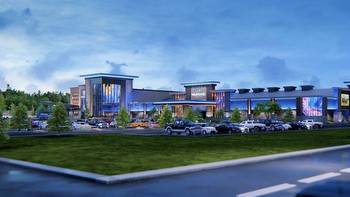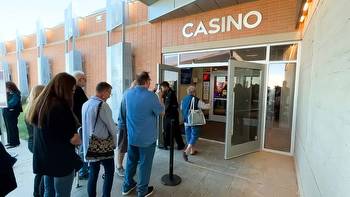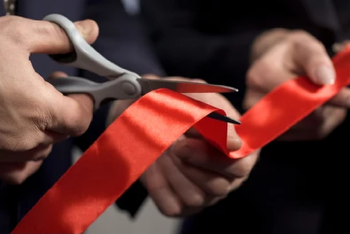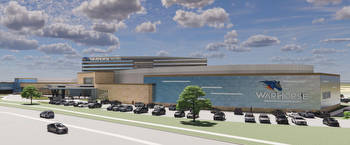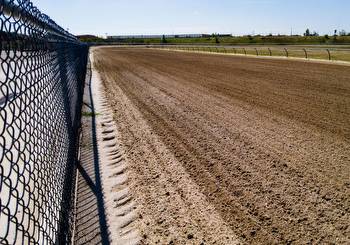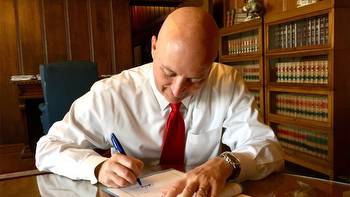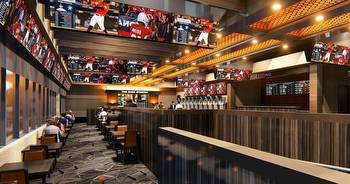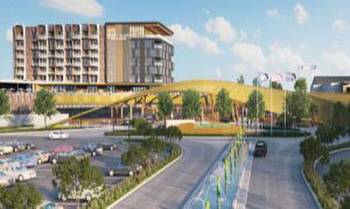Decade-old partnership brought casino gambling and horse racing together in Nebraska
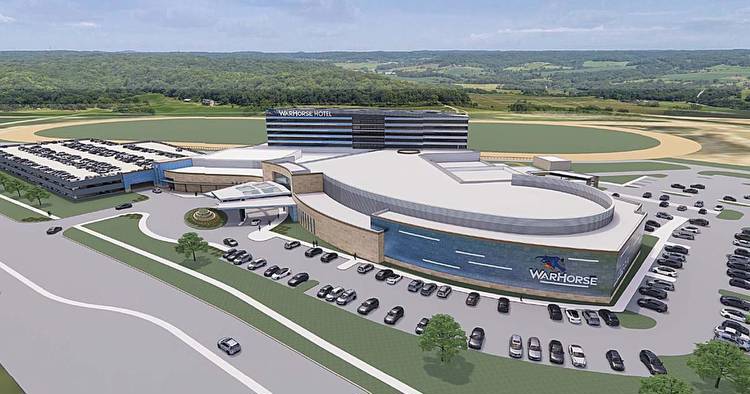
The unique partnership that has brought casino gambling to Lincoln and promises to deliver a transformative entertainment complex to the city didn’t come together as a sure bet.
Leaders from Ho-Chunk, the economic development arm of the Winnebago Tribe of Nebraska, and the Nebraska Horsemen’s Benevolent and Protective Association first shared a table a decade ago when the horsemen’s group needed cash to maintain a presence in Lincoln with the end of State Fair Park.
It sold Atokad, the shell of the longtime horse track in South Sioux City, to Ho-Chunk, which made the purchase as a strategic move.
Ho-Chunk, you see, was eyeing a casino license in downtown Sioux City, Iowa, at the time, and it saw Atokad as a long-range competitive threat should wagering become legal in Nebraska.
But when Iowa officials went with another casino's pitch, Ho-Chunk executive Lance Morgan channeled his disappointment into a bigger and bolder plan.
Morgan approached the Nebraska horsemen’s group with a plan to work together on a petition drive to legalize casino gaming. That was in 2015, and after a costly and disappointing loss in 2016, there is now the whir of spinning reels and the cha-ching of winning plays on slot machines at a temporary Lincoln casino.
And in two years, Ho-Chunk's WarHorse Casino resort will open at U.S. 77 and West Denton Road with slots, table games, a sportsbook, hotel and restaurants adjacent to Legacy Downs, the horse racing complex that officials say is key to reviving a once-proud Nebraska industry that slumped as Iowa launched riverboat gambling and Omaha’s Ak-Sar-Ben track crumbled.
“I don’t think either of us as a group would’ve had the success we’ve had without the other,” said Lynne McNally, chief executive officer of the Nebraska Horsemen.
It’s been a slow build since voters gave casino gaming the OK at the ballot box in 2020, but all sides credit the horsemen’s long-term relationship with state regulators and Ho-Chunk’s corporate structure and extensive background in real estate as keys in getting a temporary casino open and plans in place for the full racing and gaming complex.
Revenues from the initial months of casino gambling — slots first chimed in September — are already contributing to long-term plans. Earlier this year, the horsemen’s group committed $6.5 million to purchase 155 acres adjacent to the casino and horse track, a purchase that McNally says will allow Legacy Downs to grow into the complex officials have long dreamed of.
With the casino development taking up a big chunk of the original 215 acres, horsemen eyed the additional real estate as space for barns and a training ground for horses and potentially an RV campground for horsemen. A consultant is working now to put together a land-use plan for the track.
At the same time, the horsemen are spending $2.5 million to build the racing surface from the ground up.
“There’s nothing more important to us than getting those stalls put in and those barns built, because that means we can have more live racing,” McNally said. “We want a place so those Nebraska owners and trainers can stay home if they want to and make a living in their home state.”
There’s been talk of 100 live racing dates a year in Lincoln, which Morgan says is the equivalent of the casino scheduling three months of free concerts. Horse racing will be a source of free entertainment for guests coming to play the slots, dine at a restaurant or stay in the hotel.
Morgan views sports betting in similar terms. When sports betting was made legal, WarHorse went to work to integrate a “ridiculously nice” sportsbook into its Lincoln resort plans.
“It will help us appeal to a different type of clientele,” Morgan said, noting that experts describe the typical casino consumer as a 55-year-old woman while sportsbooks typically cater to 20- to 40-year-old males.
Morgan said the current plan is to have all facilities open when work on the casino resort is complete. Construction is to begin this spring with an 18-month buildout.
The initial months of the temporary casino have only heightened excitement for the full complex, Morgan and McNally said. The Lincoln casino recorded its best 24 hours on the day it opened in September, but its second-best day was a recent Saturday in February.
“It tells us that once we add all the amenities, it’s really going to be a great place to go whether you’re a gambler or not,” Morgan said. “We want to come out swinging on our first day.”
WarHorse, the gaming operation of Ho-Chunk, plans to build casinos on property owned by the horsemen’s group in both Lincoln and Omaha. Morgan said getting financing in place for the combined $500 million investment was made more difficult with uncertainties in the economy caused in part by inflation and the war in Ukraine.
But Morgan said everything is falling into place, and he’s excited by Ho-Chunk’s investment in Nebraska. When the casinos are up and running, Ho-Chunk will expand from 2,000 employees to 4,000 and plans are to invest some of their profits into “our customer base.”
Ironically, Ho-Chunk was started with money from the WinnaVegas casino in Sloan, Iowa, with the goal of diversifying investments. As a result, Ho-Chunk grew as largely a real estate development company. Its work is evident in Winnebago, with advancements in education opportunities, health care and housing.
The partnership with the horsemen is a perfect marriage, Morgan said, because officials view building back live racing as a way to benefit rural Nebraska. The taxes generated by casino gaming can help the state in similar ways.
“You don’t have to tell us to treat people well and take care of your community,” Morgan said. “All of the money we make is going to be reinvested in our state.”









